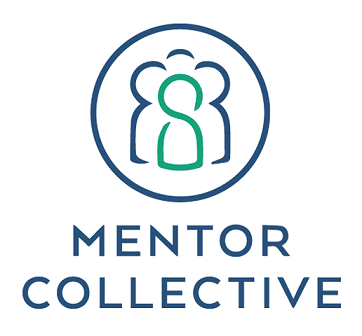
Community colleges are struggling to engage today’s students and are often overwhelmed in the face of complex student needs and limited resources. A recent survey from New America (Nguyen & Cheche, 2024) revealed that the top three reasons students drop out are that they had to work, could no longer afford a program, and/or lost motivation or ambition.
Many institutions overlook the power of peer support to sustain students’ motivation and alleviate some of the burden on faculty and staff to address individual students' questions and challenges. Mentor Collective has partnered with 200+ institutions to engage over 200,000 students in meaningful peer mentoring relationships. When asked what technology they prefer to use to communicate with their mentor, students choose SMS because of flexibility and ease. Text messaging can empower students and those dedicated to supporting them by:
Encouraging Program Participation
Incorporating native texting behaviors into peer mentorship takes away the anxiety of raising a hand, locating the right office, or finding the correct link in a school portal. Mentor Collective partners with community colleges to send customized text messages to their students inviting them to the program and giving them the means of signing up right away. Text messaging reminders can further increase participation by up to 600 percent (Mentor Collective, 2022).
Providing Someone Who Understands On Demand
Forty-six percent of faculty members say their students come to them with a mental health concern multiple times per month (Course Hero, n.d.). This staggering statistic amplifies the U.S. Surgeon General’s report on the current loneliness epidemic (Goss, 2023). Recommended in the report is the need for meaningful connections.
Mentor Collective connects students with relatable role models and a comfortable way to ask for help via SMS or a web-based platform. The company uses a complex matching algorithm driven by student preference that accounts for 80+ dimensions of identity, affinity, and lived experience. Matching surveys are configurable and the resulting intake data adds depth to educators’ understanding of what students bring with them to college and the barriers they encounter.
Responding to Factors That Contribute to Attrition
When thoughtfully designed and implemented, peer mentorship can impact a community college’s student success strategy. What makes Mentor Collective’s model so effective at increasing student retention and fostering sense of belonging is its ability to close care gaps across large populations and assess noncognitive factors shown to affect student persistence throughout the year (Mentor Collective, 2023).
Mentor Collective incorporates SMS communication to maximize student engagement and garner insights on the student experience. Mentors are nudged via text to log conversations and report flags when more immediate interventions are needed. Assessment surveys are sent to program participants via text three times per year to measure academic self-efficacy, sense of belonging, and help-seeking. This approach makes critical data available to administrators and faculty as it is collected, allowing interventions that reach the right students at the right times and streamlining administrative processes.
Schedule a consultation today to learn more about how your institution can proactively affect belonging and retention.
References
Course Hero. (n.d.). Job satisfaction among faculty rises since pandemic, survey finds. https://www.coursehero.com/blog/faculty-survey-2023
Goss, P. (2023, May 17). Combating the loneliness epidemic. Mentor Collective. https://www.mentorcollective.org/blog/combating-the-loneliness-epidemic
Mentor Collective. (2022). Product statistics. Unpublished internal report.
Mentor Collective. (2023, August 7). Gain greater visibility of factors influencing student success. https://www.mentorcollective.org/blog/gain-greater-visibility-of-factors-influencing-student-success
Nguyen, S., & Cheche, O. (2024, February 7). Enrollment at community colleges might improve, but challenges remain for students. New America Blog. https://www.newamerica.org/education-policy/edcentral/enrollment-improve-but-challenges-remain
Mentor Collective is an Innovations 2024 Advocate Sponsor.










